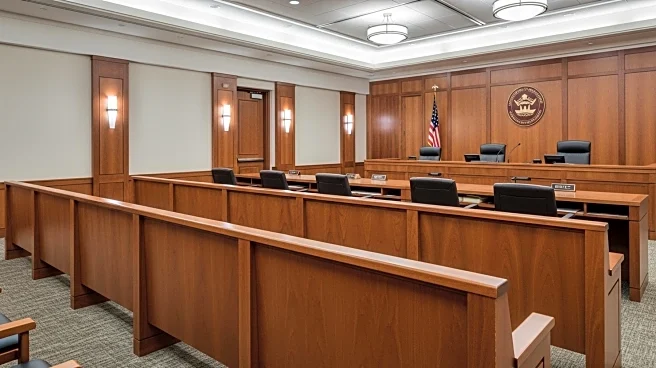What's Happening?
The Trump administration has fired nearly 20 immigration judges, adding to the over 80 judges dismissed this year. The firings have raised concerns about the administration's ability to manage immigration cases, as the backlog continues to grow. The dismissals are part of a broader effort to streamline immigration enforcement, but critics argue that the loss of experienced judges undermines due process and delays justice. The situation highlights the challenges of balancing immigration enforcement with judicial efficiency.
Why It's Important?
The firings have significant implications for the U.S. immigration system, affecting the ability to process cases efficiently and fairly. The growing backlog of cases underscores the need for effective judicial management and resources. The situation raises concerns about the impact on immigrants' rights and the administration's approach to immigration policy. The dismissals may influence public perception and policy debates on immigration enforcement.
What's Next?
The administration may face pressure to address the consequences of the firings, potentially leading to policy revisions or new initiatives to manage the backlog. Stakeholders, including immigration advocates and legal experts, will likely continue to monitor the situation, advocating for fair and efficient judicial processes. The ongoing challenges may prompt further discussions about immigration reform and judicial resources.
Beyond the Headlines
The firings raise ethical questions about the balance between immigration enforcement and due process. The situation highlights the complexities of managing a large and diverse immigration system, where policy decisions can have far-reaching consequences. The dismissals underscore the importance of maintaining judicial integrity and ensuring access to justice for all individuals.









